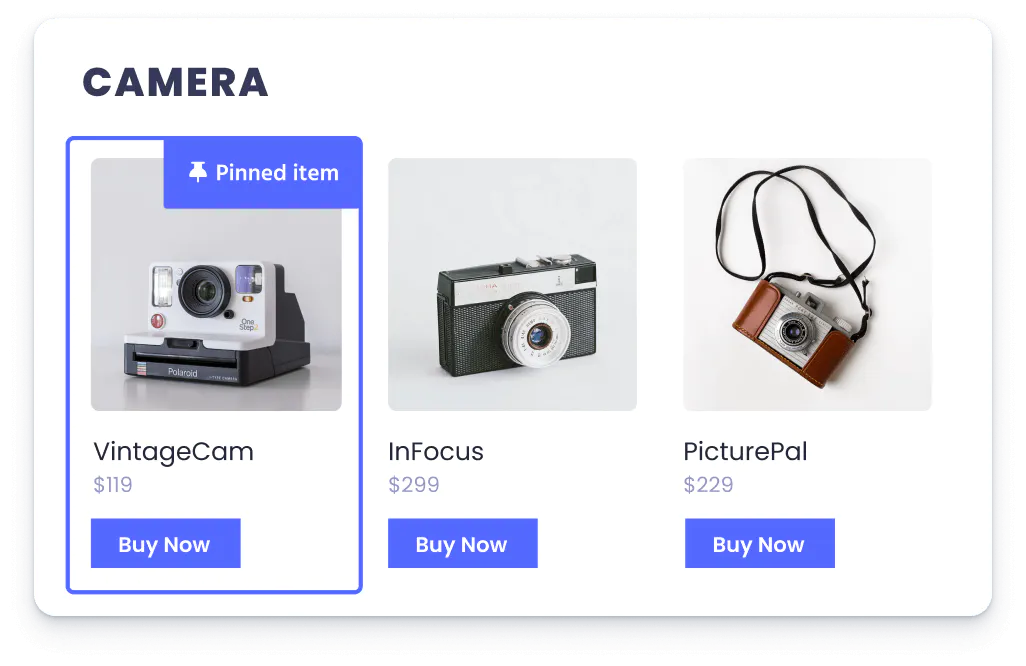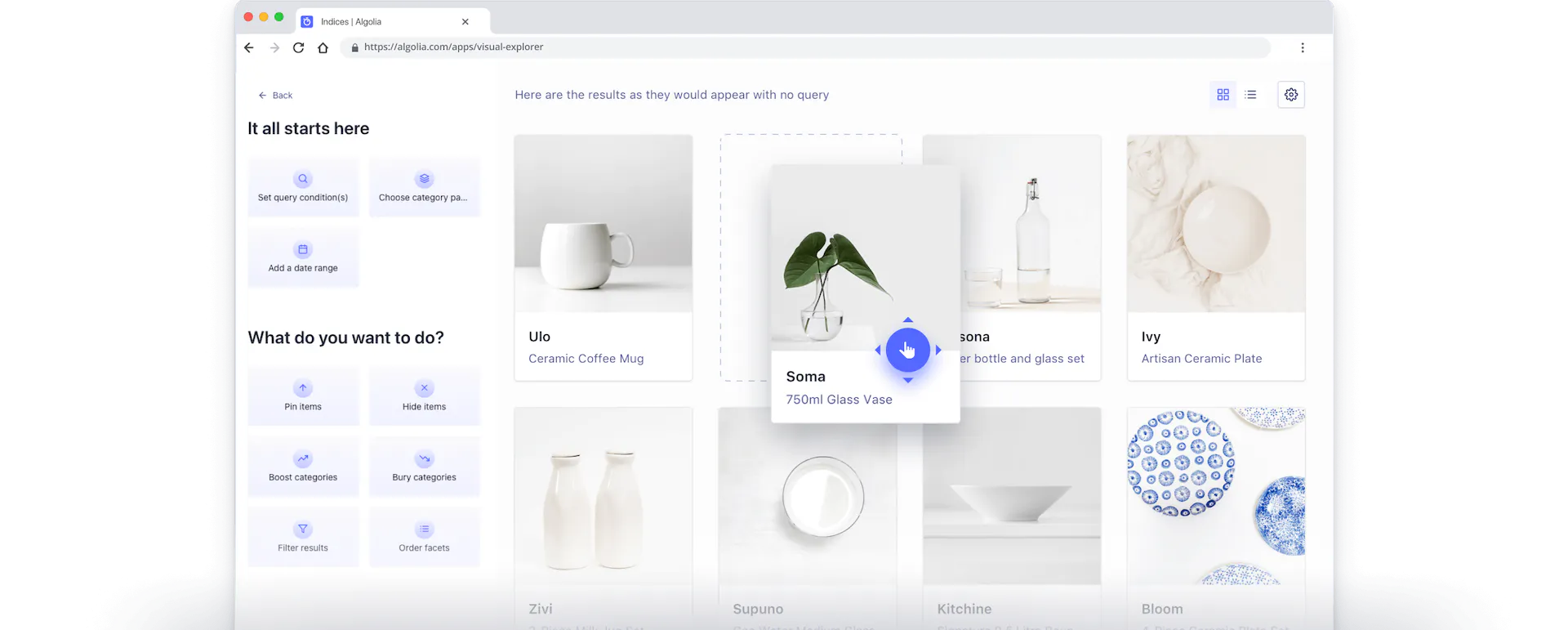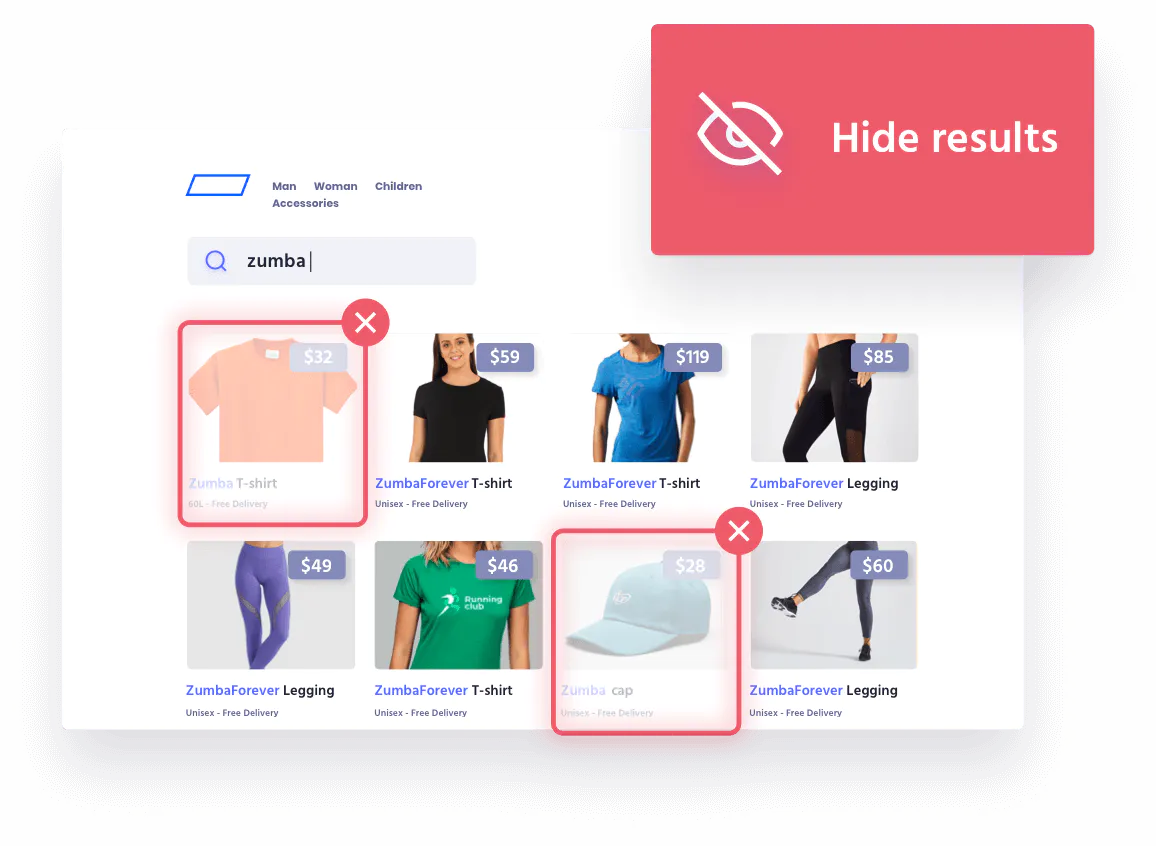#4 Mastering E-Commerce Search
E-Commerce with AI search solutions like Algolia and Coveo
Deep Dive & Interview with MANOR
Our previous deep dive, we provided in-depth insights into the SAP Commerce Cloud Solr search solution – an open source solution. Followingly, in this deep dive of our “Mastering E-Commerce Search” series you will find two components:
In the first part, we present the currently most advanced AI search solutions Algolia and Coveo, which can boost your e-commerce.
The second part, includes our interview with MANOR and how they improve their e-commerce search with Algolia.
One thing in advance: The use of artificial intelligence will be one of the key drivers in the e-commerce of the future.
Features of AI search solutions for e-commerce
E-commerce search solutions are often referred to as Search & Navigation, Search & Recommendations, Search & Merchandising or Search & Discovery. Features range from basic full-text, numeric and faceted search to highly personalized, pre-configured models based on user behavior.
Moreover, these models improve relevance, deliver results in real time and also complementary content results such as blog articles. For achieving this, AI and ML models as well as Natural Language Processing (NLP) are used. (Detailed functions: Evolution Pyramid of E-Commerce Search).
In contrast to the open source solution Solr in SAP CC, search solutions Algolia and Coveo are proprietary. Meaning, that the source code is not freely available and the technologies are developed and controlled by the respective companies. This leads to greater security and new functions can be taken into account via manufacturer updates.
Benefits of AI search solutions for eCommerce
In total, AI search solutions offer a number of benefits that positively impact the user experience and sales revenue of e-commerce systems.

Benefits for end customers
- Improved relevance: Your customers will find what they are looking for
- Faster results: Your customers don’t have to wait long for results
- Personalization: Your customers receive more relevant results based on their individual needs
- Overall, this creates a better customer experience and the customer is more satisfied

Benefits for business users
- Scalable search solution: You can expand the search while maintaining the performance
- New merchandising features: You can promote products/offers more effectively
- AI-powered Semantic Search: You can configure search faster and easier for highly relevant content results
- Time saving with AI: You can automate manual tasks
Which mechanisms make AI search solutions better than traditional search solutions
AI is on everyone’s lips and is used as a differentiating factor. Therefore, we want to “look under the hood”. The question is, what key features and mechanisms make AI search a performance booster:
- Learning ability: Unlike static search algorithms, AI models can learn from data. Over time, AI can improve thanks to user behavior, and feedback provided.
- Personalization: AI can analyze user profiles or behavior and tailor search results accordingly to provide more relevant content for individual users.
- Semantic understanding: Instead of just searching for keywords, AI can understand the context and meaning of words to provide more relevant results.
- NLP (Natural Language Processing): allows the search engine to understand human language in a natural form to be interpreted more accurately.
- Error correction: AI can automatically detect typos or misspellings and still provide relevant results by predicting what the user may have actually meant.
Some more points are:
- Image and voice recognition: Advanced AI search solutions can search and interpret content such as images, videos and voice recordings.
- Dynamic filtering and faceting: Based on user requests, AI can suggest dynamic filters or facets for improved navigation and fine-tuning of search results.
- Automatic tagging and classification: AI can automatically tag and categorize content, improving indexing and presenting more relevant search results to users.
- Feedback loops: By collecting and analyzing feedback, AI models can continually improve their predictions and recommendations.
- Predicting user intent: AI can attempt to understand the intent behind a search query and present results that match not only the exact query, but also the intended meaning.
AI search solutions at a glance: Algolia and Coveo Short Profile
Below we’ll look at the two leading advanced search solutions Algolia and Coveo. With powerful APIs, both solutions can be implemented quickly and seamlessly into websites and mobile applications. In addition, both solutions follow the MACH architecture principle with slightly different approaches. This makes it a good option for companies looking to quickly and easily improve their search. Consequently, the right solution for you depends on the individual needs of your company.
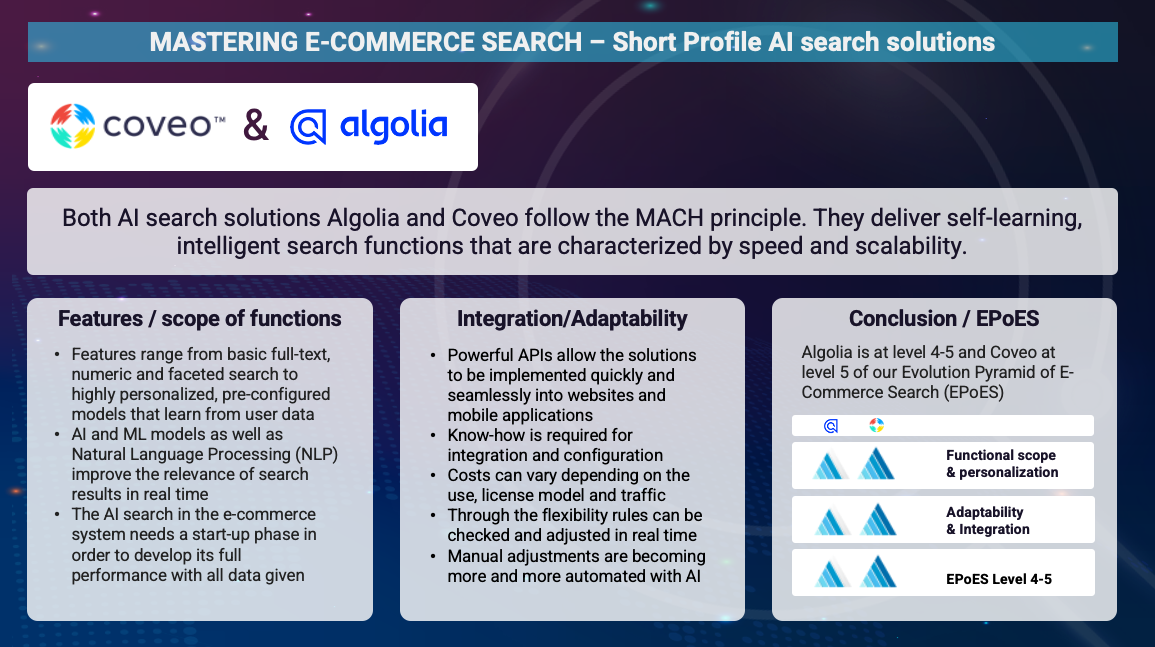
AI search solution Coveo: Characteristics
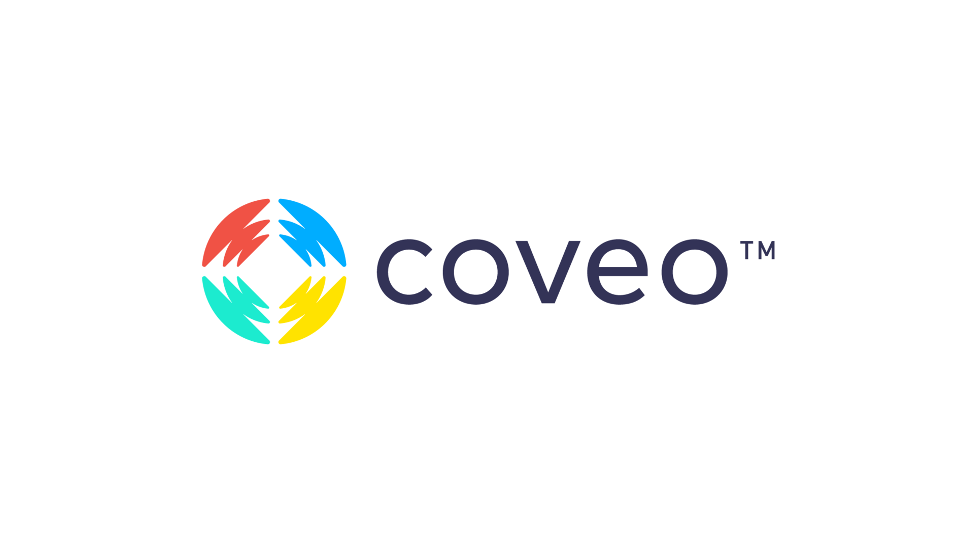
Coveo, also known as “cognitive search,” is a leading AI-based solution from search to recommendations to personalization. To add more, many enterprise companies also boost their internal search functions with Coveo and analyze visitor behavior across the entire website to display relevant website content more quickly. This means that employees as well as partners or specialist customers can access relevant content such as documents, videos and blogs more quickly. This results in Coveo standing out significantly as a provider of search solutions. More than this, Coveo uses a central search index hosted on a single server. Ultimately, this can improve security and control, but can also limit speed or scalability.
Who is the Coveo search solution suitable for?
- A company with sensitive data that needs a search solution to protect that data from unauthorized access
- A company that needs a search solution for its knowledge base to make it easier for employees to access information
- A company that needs a search solution for its product data to help customers find products
Coveo as a solution for the SAP Commerce Cloud
Coveo has been recognized by SAP as an SAP „Endorsed Partner“ for search solutions. This partnership results in seamless integration into the SAP Commerce Cloud. In general, many companies use Coveo with SAP Commerce with high complexity (many markets, languages, rules, etc.) as well as with large catalogs (SKUs) and large amounts of data/data sets in various systems such as ERP, PIM or other content in other systems. Summing it up, Coveo is a good choice for any company that needs integrated search with other corporate systems, with high security and control over their data.
AI search solution Algolia: Characteristics
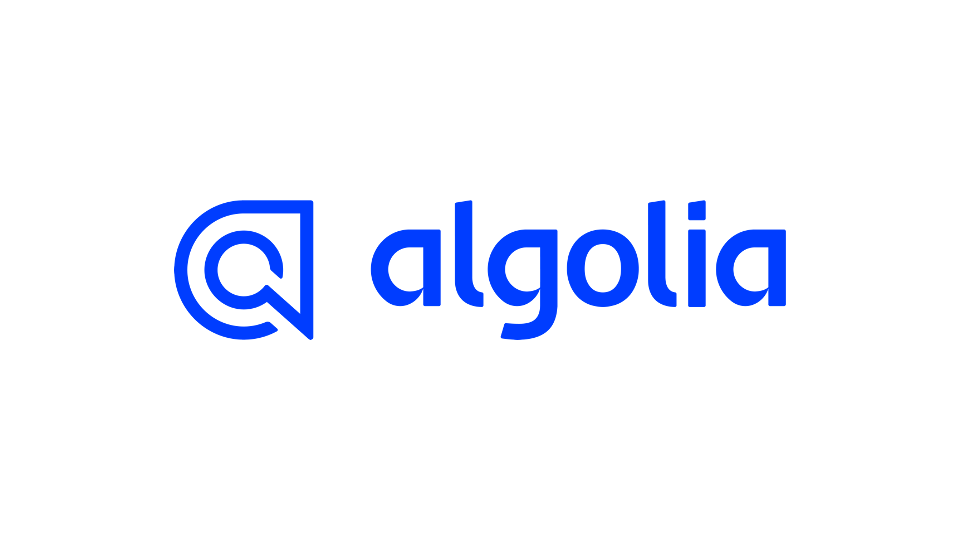
Algolia, also called “search” and “recommendation” or “product discovery” for short, is also a leading AI search platform known, among other things, for its lightning-fast search speed and precise search results. Algolia also follows the MACH Approach (Microservices, API-first, Cloud-native, Headless).
Algolia uses a distributed search index hosted on multiple servers. This enables very fast response times and enables high scalability but can limit data security.
Who is the Algolia search solution suitable for?
- Companies with large product catalogs or complex search queries
- Companies looking to provide a fast and scalable search experience
- Companies that need a flexible and customizable search solution
- The complexity is also high here, but the amount of data across different systems is more manageable
Read another comparison of Algolia vs Coveo here.
Why add an AI search solution to your SAP Commerce Cloud?
Since Solr ships with SAP Commerce Cloud, there are no additional costs and the open source platform has built-in integrations for interacting with the Solr server. So why replace it? Searching with Apache Solr is fast, reliable, and highly configurable if you know what you’re doing. And that’s exactly the point. It is quite difficult for business users to leverage the power of Solr in an SAP Commerce environment. Handling schema.xml files, configuring search behavior in the SAP Commerce back office, managing indexes, and analyzing query breakdowns in the Solr server console can be challenging for backend developers with technical backgrounds, not to mention marketers. This doesn’t mean Solr is bad, it just may be more difficult and require more development capacity to reach its potential (more on this in the Solr Deep Dive).
How Coveo and Algolia make a difference
In contrast, AI search solutions such as Coveo or Algolia provide a user-friendly and intuitive environment in which developers and business users can configure, test and demonstrate search behavior. This, along with technical support and extensive documentation, allows the company to develop the search experience it wants without depending on commerce developers, who in turn can focus more on developing features in other areas. In addition, as listed at the beginning, the solutions have intelligent (AI) capabilities and a rule engine that can further advance your business goals.
Deep insights into Algolia: optimizing e-commerce search for MANOR
For MANOR, the largest department store group in Switzerland, selecting AI search became essential to expand their search capabilities and optimize CX. Our customer has successfully implemented Algolia in their SAP Commerce Cloud. Learn how using this AI search solution has optimized MANOR’s eCommerce search and delivers consistent, impressive results.
Interview: MANOR’s use case for e-commerce search
Our customer MANOR initially used Solr from the SAP Commerce Cloud until they implemented Algolia on Top in May last year to expand their search functions and optimize CX.
Christophe Roueche, On Site Search Specialist, was available for our interview. Since the requirements for e-commerce search always depend on the respective business model, we start with an introduction to MANOR’s Business.
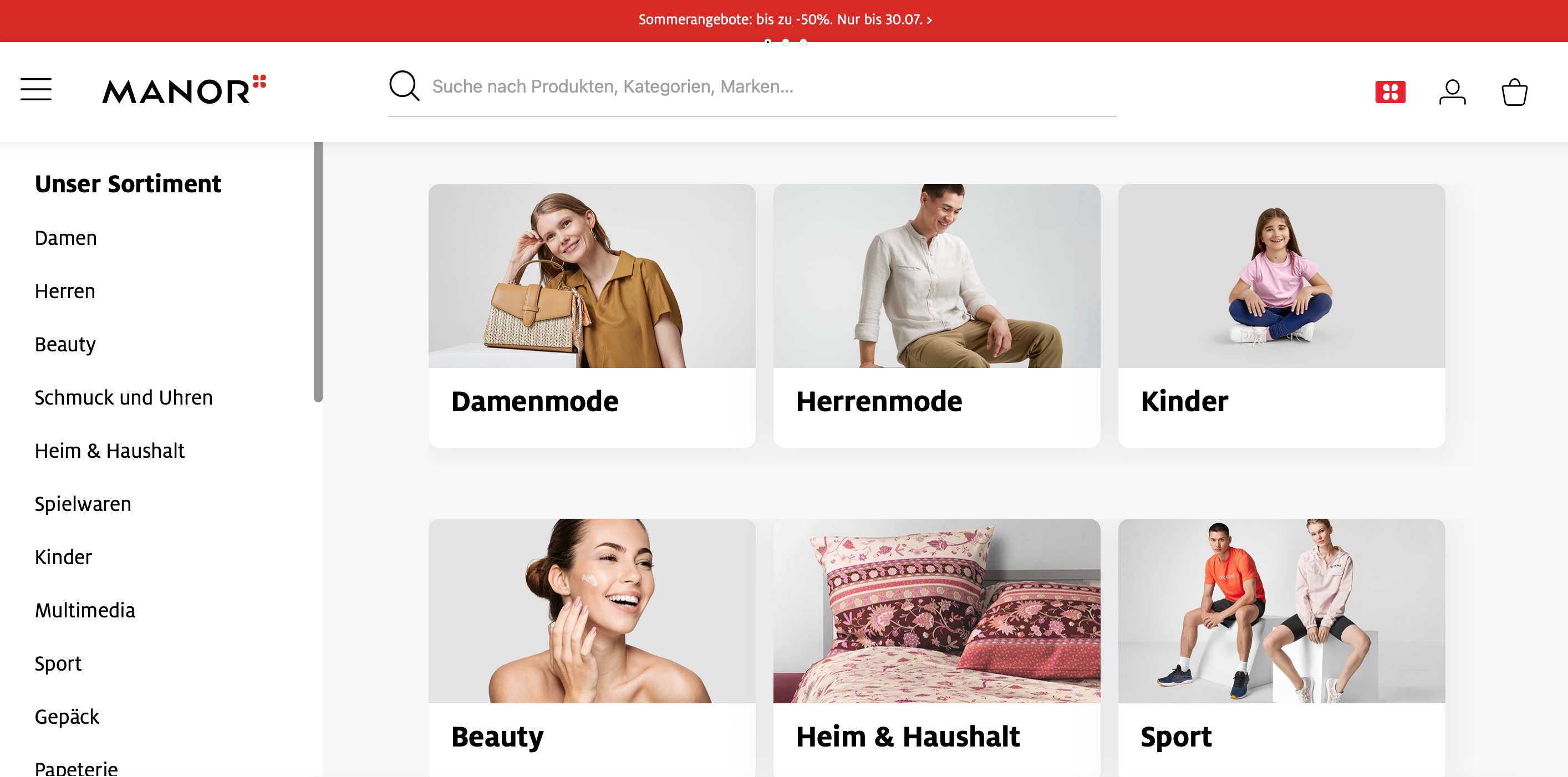
The MANOR Group, the largest department store group in Switzerland, includes 59 Manor department stores, 27 Manor Food supermarkets and 23 Manora restaurants. In total, Manor stocks over a million items from around 2,800 suppliers from all over the world, including 700 local producers. MANOR’s headquarter is in Basel. The wide range includes third-party and own brands in areas of fashion, beauty, sports, travel, jewelry, toys, multimedia, home & household and more. The online shop includes 500,000 items. More information about Manor here:
Manor’s E-Commerce Search Profile:
Responsible for e-commerce search and our interviewee: Christophe Roueche, On Site Search Specialist
“On-site search is the compass that guides users
to their desired destination within your digital realm.”
E-Commerce System: SAP Commerce
Search Solution: Hybrid, SAP CC Solr + Algolia
Interview:
Despina: “Thank you again for taking the time to answer my questions!”
Christophe Roueche: “Thank you very much for the invitation, it’s my pleasure!”
Selection process
Despina: “Let’s start: You use Algolia for your e-commerce search. How did the selection process for Algolia take place?
Christophe Roueche: “Exactly, we use both elements of Algolia: Search and Recommendations. Unfortunately, I wasn’t there when MANOR chose the search engine. What I know about the background is, that we used to work with a full-service agency that configured all search functions. We wanted to switch to a search solution where we could, for example, configure or set search functions or search rules ourselves. This independent use was a must-have when deciding on a search solution. Above all, we wanted to be able to manage the browsing section of the website ourselves, which is possible with Algolia. The search and navigation functions allow us to define our categories ourselves using boosting or pinning rules. For example, we can push a product up for a certain period of time and hide other products, this function is called “Boost and Bury”. The user interface is very intuitive. Products can be pinned or configured using drag and drop to set specific rules. We can check in real time whether the rule worked or not. In this respect, Algolia is very flexible as a tool.”
Algolia support
Despina: “That sounds like a valuable improvement. To what extent do you receive support from Algolia?”
Christophe Roueche: “We have had a Success Manager as our contact person at Algolia since day 1. Bi-weekly we discuss all questions, as well as business-specific and technical challenges. In general, there is detailed Algolia documentation and also the Algolia support center. For technical matters we still have a technician at our side, directly dedicated to Manor.”
Manor’s business users
Despina: “Are there many people internally at Manor who use Algolia, or are you the only one who is responsible?”
Christophe Roueche: “I am the only one responsible, but I am not the only user of the tool. We have our online category manager and other assistants internally who use Algolia on a daily basis to create new rules for Manor.”
Technical setup
Despina: “What is the technical set-up of Algolia? Can all data be transferred from Hybris/SAP CC?”
Christophe Roueche: “Yes, we get all the attributes and all the products from Hybris (SAP Commerce Cloud), we have over 500,000 records, they all have different attributes. These are organized sensibly in order to display all categories correctly. For the subsequent sorting, these attributes are used, such as “inexpensive”, either ascending or descending. Basically, Algolia offers impressive configuration options. When it is integrated into the web shop, it is initially an empty shell with a large search engine. It knows nothing about the business, the behavior of customers, the way they search for products. It takes a very long time until the search engine is configured correctly.”
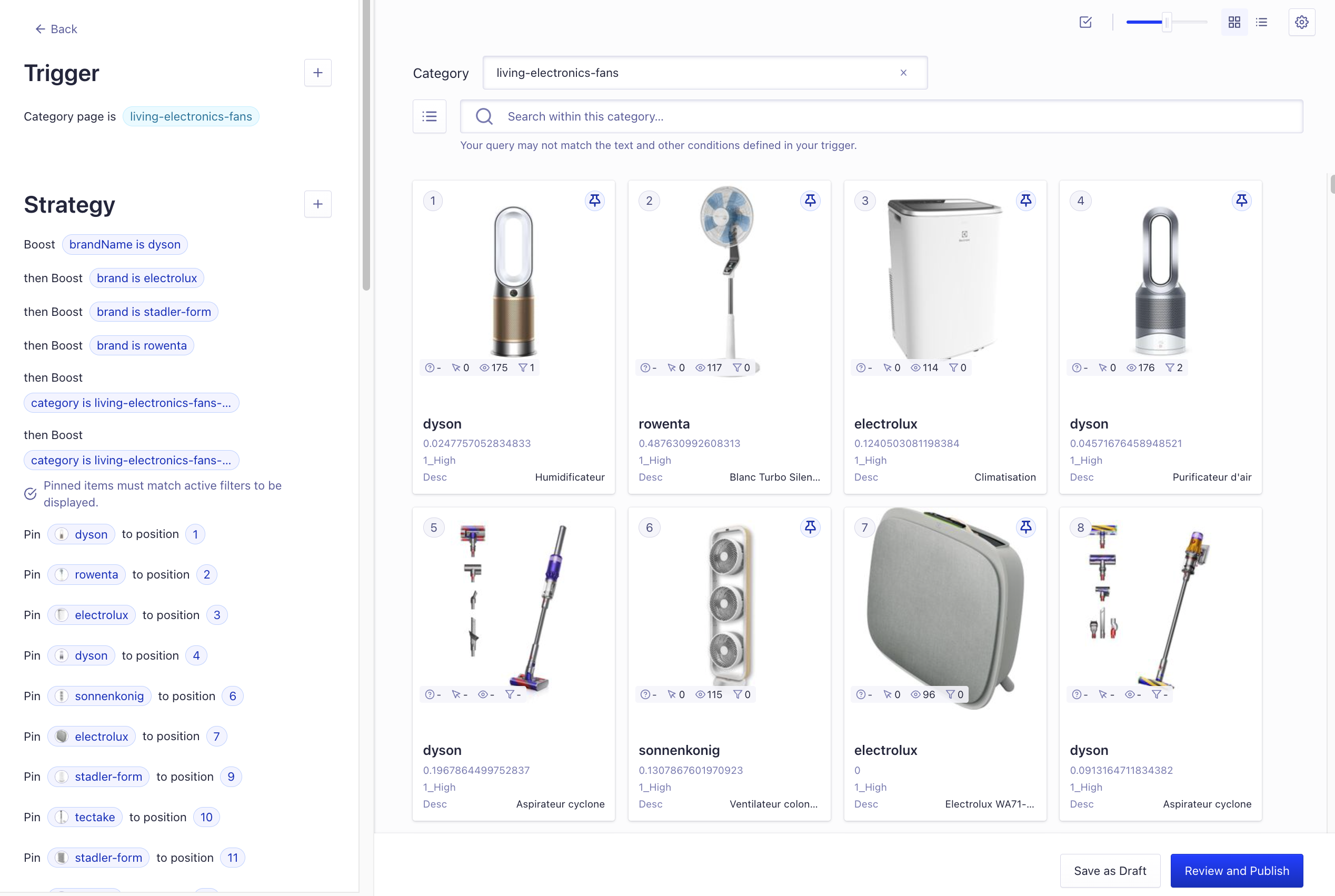
Algolia’s configuration at Manor
Despina: “What needs to be taken into account from a technical and business perspective when configuring Algolia?”
Christophe Roueche: “The technical configuration of the tool must be carried out by an Algolia specialist. At Manor we have a whole team of technicians who have the know-how to implement, integrate and configure the search solution, from the front end and back end to the middle layers. It is important for the business team to ensure on a daily basis that everything is configured correctly and that the tool delivers relevant results in order to achieve the planned conversion rate.”
Algolia’s opportunities and challenges
Despina: “How is Algolia running at the moment? Do you already see any added value or benefit in relation to the costs and resources you have used?”
Christophe Roueche: “Yes, if the search solution is configured correctly. For example, the problem we have is that we have too much bot traffic (internal and external bot machines that crawl through websites and verify everything from categories to organizational information). Algolia’s billing, especially for navigation, counts every search request. So we also pay for this website crawling. Before the new website went live, this was not in the scope and we had far too many bots. So now we are trying to reduce bot traffic because we are surprised that we are still so far away from the planned traffic. In terms of costs, we have defined a flat rate with Algolia in advance, which is a limit for us that we do not want to exceed. So we pay this planned amount for the whole year and at the end of the year we see exactly how many search requests we have used. We then have to make up the difference. Next year we have to adjust the target to the traffic and increase it.”
Aloglia’s functions at Manor
Despina: “Which functions other than “Boost & Bury” are configured by your business team on a daily basis?”
Christophe Roueche: “We use the option to continuously adapt synonyms. If we see that a word does not produce any results, we add another word as a synonym. Here we use “one-way synonym” or “two-way synonym”. But there are also AI synonyms, i.e. synonyms that Algolia already suggests; we then just have to accept or reject them. We also filter the search results according to how we want to display our products or product list page (PLP) for our customers. For example, in a search query for beauty products we would like to display certain beauty products in first, second or third position or we would not like a product to be displayed at all. This is called filtering, pinning or hiding.”
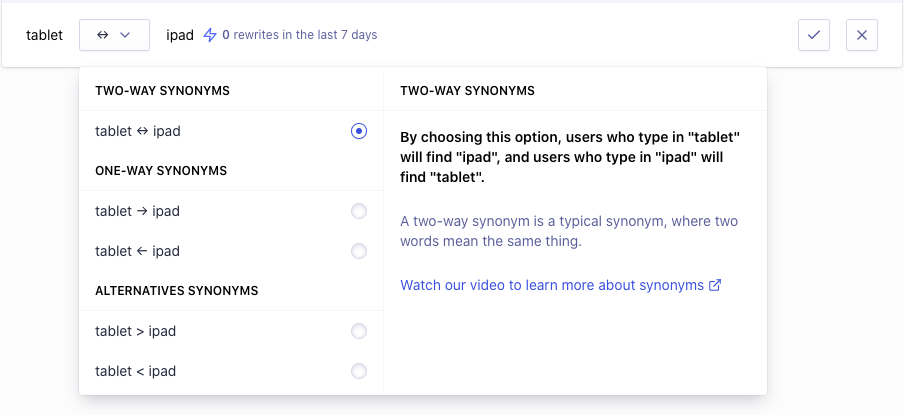
Aloglia’s AI functions at Manor
Despina: “Are there any more AI functions from Algolia that are essential for Manor?”
Christophe Roueche: “Re-ranking is also exciting for our PLP. Here, Algolia counts how often products are clicked on, displayed or added to the shopping cart. For this purpose, performance scores are derived in the tool itself and you can then move these products up or down depending on their performance. This is very good and clever from Algolia. For example, for clothing, toys or even bed linen, there may be rules stored in advance, but Algolia calculates the performance score in real time, because in the morning it can be completely different than in the evening or depending on the season: the top performing products are then placed at the top.”
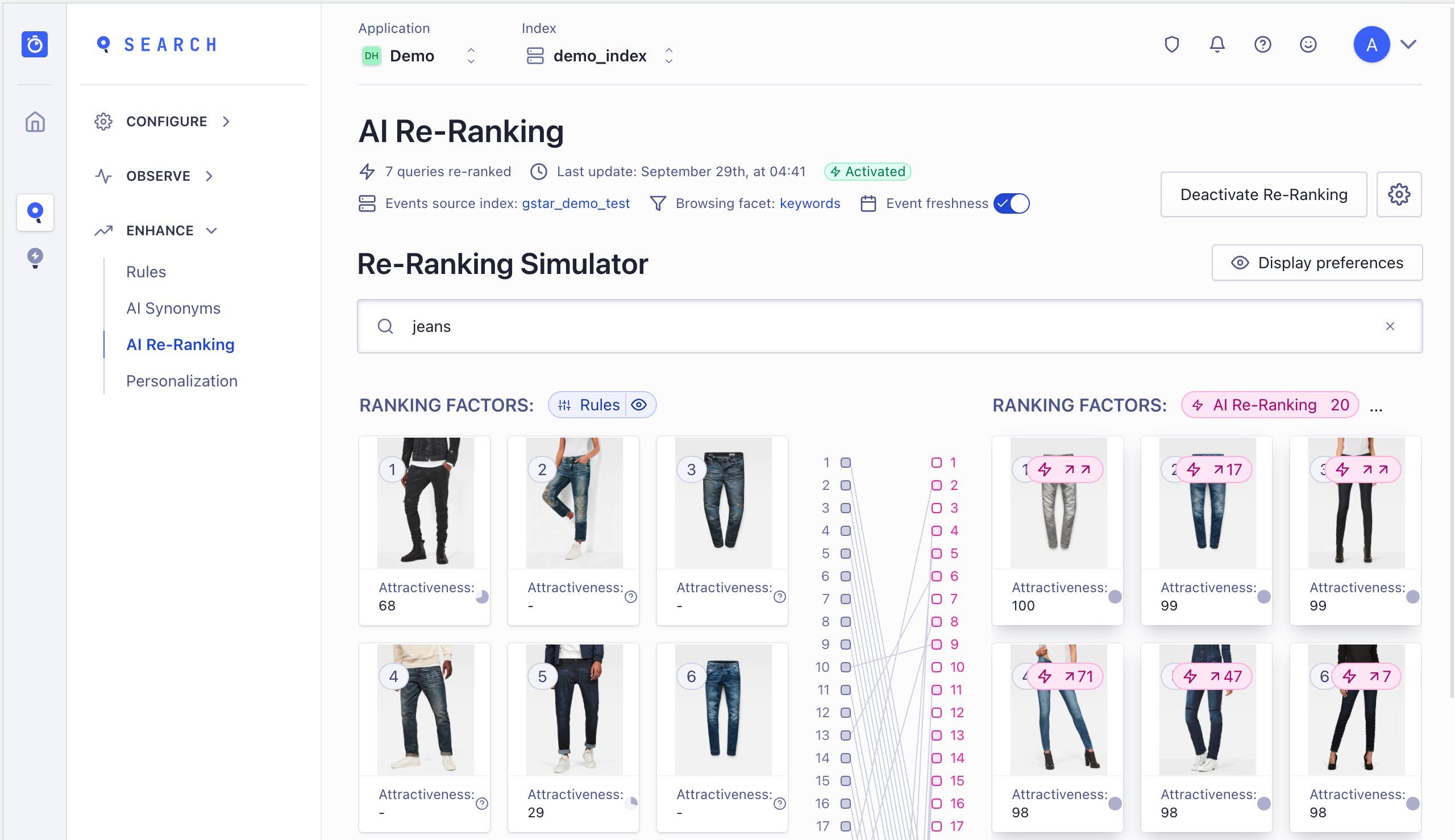
Algolia’s new functions
Despina: “Are there any functions of Algolia that you don’t use yet?”
Christophe Roueche: “Algolia is investing a lot in new functions, for example personalization based on customer behavior, which we have not yet implemented. For example, a customer has more affinity for a brand or a category and accordingly products can be placed up or down depending on customer behavior in the respective “search session”. But we first have to create the technical requirements for this.”
Important KPIs at Manor
Despina: “Which KPIs are the most important for you, how are they analyzed?”
Christophe Roueche: “The most important KPIs are click, add-to-cart, conversion and click-through rates as well as share of usage, the proportion of sessions in which the search function is used. Of course, sales revenue is also important overall and depending on the product/category. It is important to monitor and control these KPIs on a daily or weekly basis, e.g. also search exit, i.e. everyone who cancels the search query and leaves the online shop. We then use this information to check the functionalities in detail to identify where something is not working as we or the customer imagines. So it has to be checked whether the right products are displayed in the right place.”
Functions that improved search at Manor
Despina: “Is there a concrete example that a function X has improved the search?”
Christophe Roueche: “An A/B test is currently running on our shop to test different sorting attributes. The test runs on the “Top Seller” category, where we use a different attribute now. Previously we had a generic attribute “Count of Purchase”, i.e. how many times the product was purchased within the last 7 days. This way, we only received a number. But since many cheap products are bought very often, which affects the margin, we realized that we need to set revenue/margin as an attribute. With this new attribute we calculate how often a product is purchased and what the selling price of this product is. This allows us to better compare products, for example a product that was bought once but costs 1000 francs with a pair of socks that only cost 10 francs. This means that cheap products no longer get the better score, but rather those that bring in a higher margin.”
Improvements through Algolia
Despina: “Are there any other improvements you have observed since implementing Algolia?
Christophe Roueche: “Since the beginning of May last year (we started with Algolia in 2022) we have already seen a slight but continuous increase in sales and improvement in the conversion rate. There are always ups and downs and after certain adjustments you only gradually see how the results develop and of course the goal is and remains to continue to support the tool as well as possible so that it keeps getting better. For example, on Black Friday or other promotional days, the conversion rate can be two or three times higher than usual.”
Customers search intentions at Manor
Despina: “How do customers search at Manor, what are exemplary search queries?”
Christophe Roueche: “Of course there are queries that are most searched for and among them these top performers. We have to maintain these as best as we can so that customers see and buy them. In general, there are many different search behaviors. There are people who come to the online shop and already know what they need or they come via Google Shopping and either they convert or they leave. But there are also people who see the product via Google Shopping and don’t like it and continue searching. What we have observed is that the conversion rate for those who are already looking for specific products via Google Shopping then land on our web shop and continue searching, is extremely high. We figured that people are in a mature buying phase because if they come from Google Shopping, the likelihood of them converting is extremely high. Basically, it’s really important that customers who are looking for something simply use the search function and find what they need. This is now assumed and expected by search engines like Google and Co..”
Next steps for Manor’s e-commerce search
Despina: “What are the next steps for your e-commerce search, are you evaluating any other new features?”
Christophe Roueche: “Yes, we will test NeuralSearch for 60 days. This is a tool that will help us maintain search queries even better in the future, achieve even better results and reduce the workload. We have between 250K – 500K unique search queries on manor.ch every month. As I said, there are top performers and we maintain the most searched keywords every day. But there are also 70% that are only searched once, twice or five times per day, which we haven’t focused on so far, because you can’t maintain a hundred thousand keywords and NeuralSearch will be very helpful here.
About Neural Search
(Codeitlabs note: NeuralSearch is a new AI function from Algolia, this includes both a vector search and the well-known keyword search, which can run in parallel and rank search results from high to low relevance. Algolia NeuralSearch improves the accuracy and quality of the results and at the same time, manual work and adjustments are carried out automatically.)
Manor’s pipeline for e-commerce search improvements
Christophe Roueche: “Social search is also a topic I’m looking forward to, it will be very exciting. There are currently two topics in the pipeline: 1. Personalization, we hope to be able to implement this in the next few months. 2. Recommendations, we already have recommendations in use for the Product Display Page and by the end of the month we can also display recommendations for Add to Card. In fact, we collect all data and events in this solution in order to use them for the recommendations.”
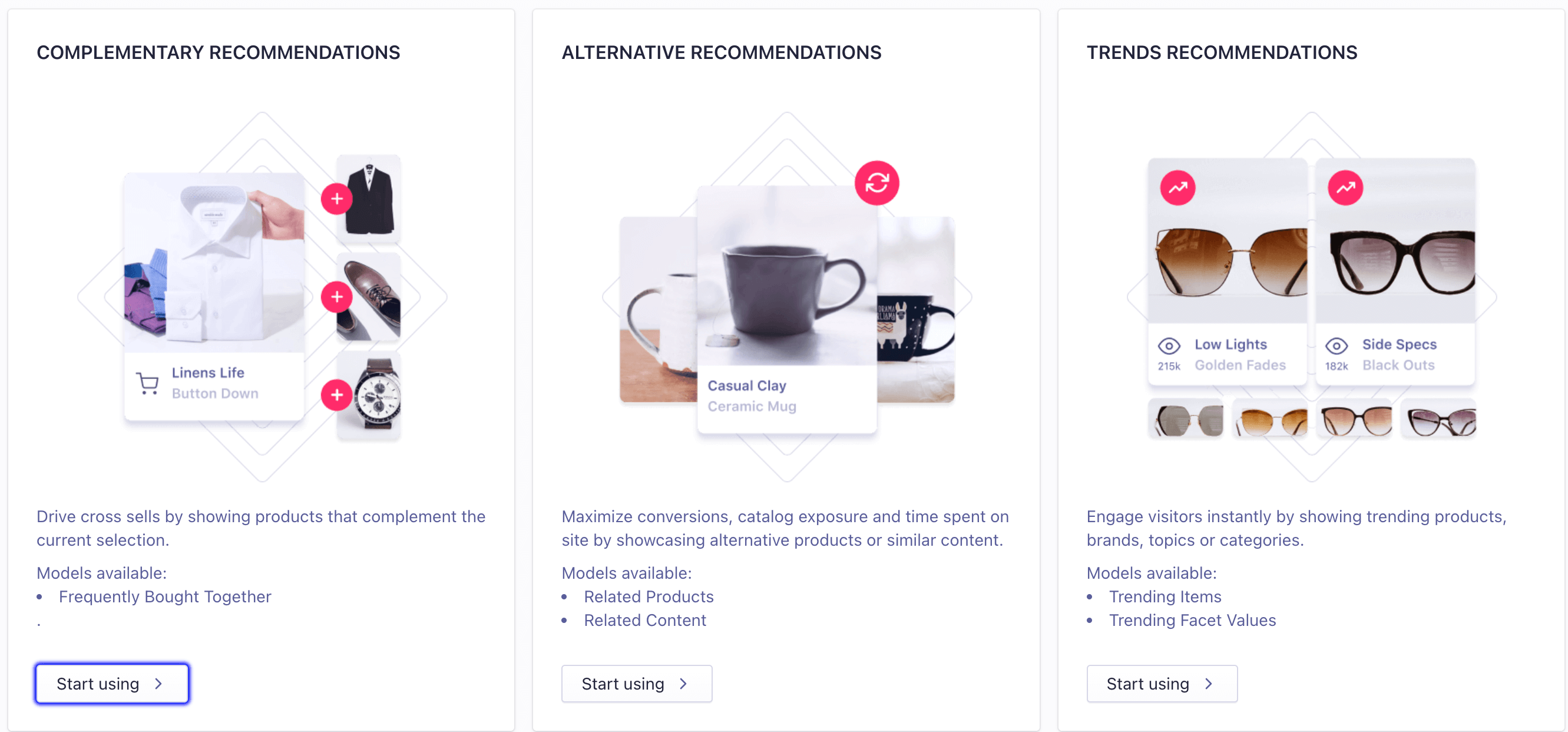
Final advice from Manor
Despina: “Finally, what is your advice for other companies currently evaluating a search solution?”
Christophe Roueche: “In order to evaluate an e-commerce solution for search, you have to know whether you have the capacity to maintain the tool yourself. It can employ several people full-time. Companies should also ensure that they have traffic with a minimum of bots, this will save you from unpleasant surprises when billing. Adjusting daily and creating rules to correct exceptions is a must if you want to continually improve. Basically, e-commerce search is an important part of the web shop. When implemented well, it generates up to 50% more sales (depending on the industry). So you shouldn’t underestimate the importance of a search tool or plan too few resources for it or be stingy. People search on Google, on social media and also directly in the shop.”
Despina: “Great, thank you very much for your time and the many valuable insights!”
Christophe Roueche: “Of course, it was my pleasure.”
Summary: What can we learn from the interview? What opportunities and challenges does Manor face with the AI search solution Algolia?
Opportunities:
- Business teams can configure search functions and search rules without depending on an agency
- The flexibility of the tool means that rules can be checked and adjusted in real time
- Dedicated contact person and bi-weekly meetings with Algolia to clarify all business and technical questions, there is also Algolia documentation and the Algolia Support Center
- Flexible options for configuring synonyms manually and with AI support
- The order in which products are displayed can be defined and adjusted at any time
- Algolia continuously calculates the “top performers” with so-called performance scores and shows how often products are clicked, displayed or added to the shopping cart, etc.
- Slight but continuous increase in sales and conversion rate
- Manual adjustments are becoming more and more automated with AI features like Neural Search
- All analyzed data from the search tool can be used for recommendations
Challenges:
- Technically savvy people are essential. If possible, an Algolia specialist who has the necessary know-how to correctly implement, integrate and configure the search solution across all interfaces – this means that capacities and resources for this must be planned
- After integrating Algolia into the web shop, intensive and continuous configuration is necessary until the search engine scans the business and customer behavior
- Costs depend on the license model/contract and the bot traffic on the website
- The technical requirements must be created in order to personalize respective search sessions
- Attributes should be defined in a way that does not affect margin/sales revenue
- After making certain adjustments, it takes time to gradually see positive results
- Continuous support of the tool is necessary (the more the AI learns from the users and the data in the system and is further expanded, the less support is necessary. Of course, you should observe with common sense)
CONCLUSION:
In today’s world where customers expect their online shopping experience to be smooth and personalized, AI search tools have become essential. Implementing these advanced technologies can strengthen competitiveness in the e-commerce market. Especially companies that want to be one step ahead can significantly boost their e-commerce and the associated CX with AI search.
If you would like to find out more about Coveo or Algolia, we would be happy to consult you. Depending on your use case and business requirements, we discuss which solution makes sense for you and your business and how you can integrate it into your e-commerce system.
Follow our MASTERING E-COMMERCE SEARCH series to not miss any relevant information about search in e-commerce.

